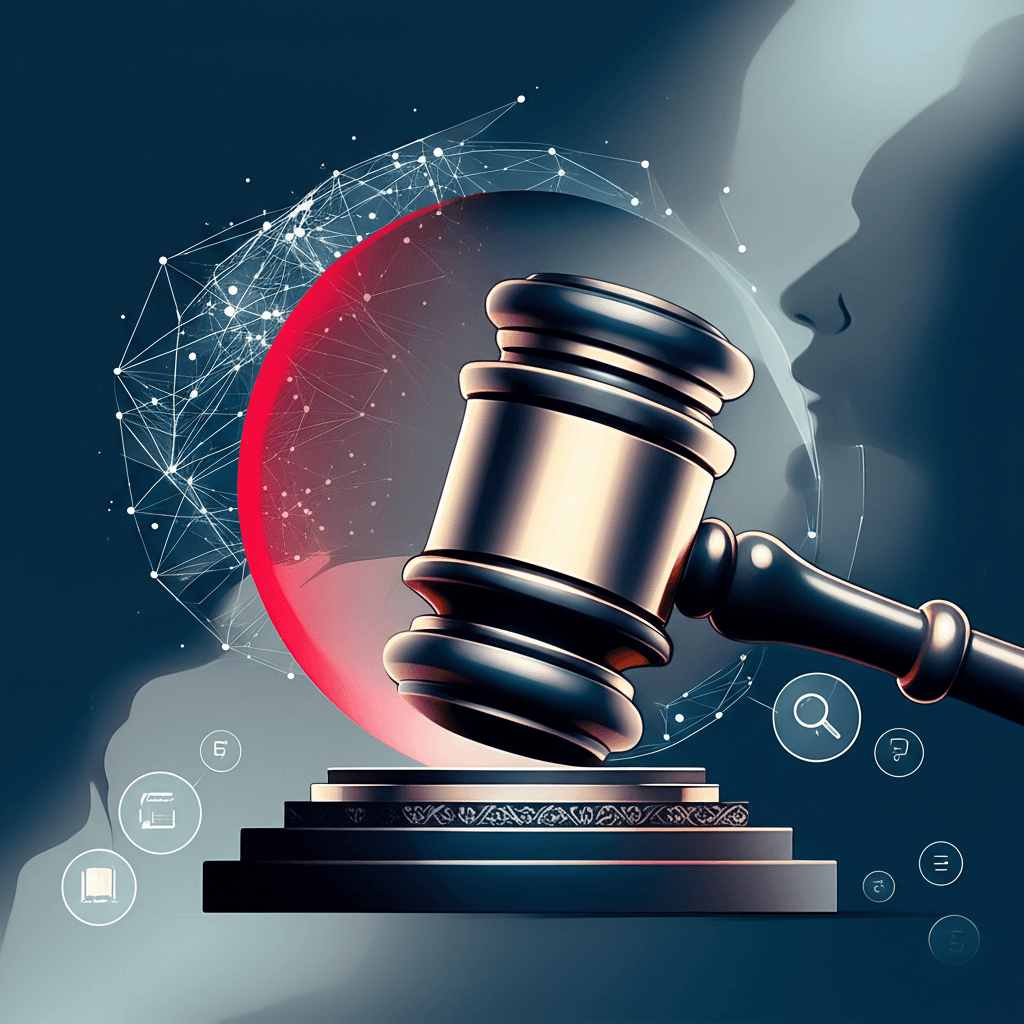Kerala High Court pioneers AI regulation, bans generative AI for judgments.
Kerala High Court's landmark AI policy bans generative tools for core judicial functions, prioritizing human intellect and trust.
July 22, 2025

The Kerala High Court has established itself as a pioneer in India's judicial landscape by issuing the country's first comprehensive policy regulating the use of artificial intelligence within the state's district judiciary.[1][2][3] In a landmark move, the court has strictly prohibited the use of generative AI tools like ChatGPT, Gemini, and DeepSeek for core judicial functions such as legal reasoning or delivering judgments.[4][3][5] This policy, titled 'Policy Regarding Use of Artificial Intelligence Tools in District Judiciary', aims to create a framework for the responsible and restricted application of AI, acknowledging its potential benefits while safeguarding against the inherent risks.[1][6] The guidelines underscore a fundamental principle: while technology can be an assistive tool, it cannot supplant the human intellect and reasoning that are non-negotiable in the dispensation of justice.[4]
The policy's primary thrust is a complete ban on employing AI to arrive at any findings, reliefs, orders, or judgments.[1][4][2] The circular explicitly states that the responsibility for the content and integrity of judicial orders rests entirely with the presiding judges.[4][2][5] This directive extends to all members of the district judiciary, including their staff, interns, and law clerks, and applies regardless of the device used or the location of use.[1][3] The court has advised "extreme caution" in the use of AI, citing potential negative consequences such as the violation of privacy rights, data security risks, and the erosion of public trust in the judicial process.[6][3][5] A key concern highlighted is the nature of cloud-based AI tools, where user inputs might be accessed or utilized by service providers, creating a risk of serious breaches of confidentiality for sensitive case information.[2] Consequently, the use of all cloud-based services is to be avoided, except for those expressly approved by the High Court or the Supreme Court.[2][7][8]
While placing firm restrictions on the use of external generative AI, the Kerala High Court's policy does allow for the supervised use of approved AI tools for administrative and non-judicial tasks.[4] The guidelines are designed to ensure that AI is used responsibly and solely as an assistive tool for specifically permitted purposes.[6][5] For instance, AI-powered translation tools can be used, but their output must be meticulously vetted by qualified translators or the judges themselves.[4] The policy mandates that any use of AI must adhere to the principles of transparency, fairness, accountability, and the protection of confidentiality.[1][6] To ensure this, every district court is required to maintain a detailed audit trail of all instances where AI tools are used, documenting the specific tool and the verification steps taken.[4][3] Furthermore, the policy emphasizes the need for training, requiring judicial officers and staff to attend sessions on the ethical, legal, and practical aspects of AI.[3][9][10] Any inaccuracies or issues arising from the use of approved AI tools must be reported for review.[3][9]
The Kerala High Court's initiative arrives at a time when the Indian judiciary is actively exploring the integration of technology to tackle its massive case backlogs and improve efficiency.[11][12] The Supreme Court of India has its own AI committee and has developed tools like SUPACE (Supreme Court Portal for Assistance in Court Efficiency) for legal research and SUVAS (Supreme Court Vidhik Anuvaad Software) for translating judgments.[13][14] The central government has also allocated significant funds for the e-Courts Phase III project, which includes the integration of AI and blockchain technologies.[11][15][16] However, the rapid integration of AI also brings significant data privacy and ethical challenges, particularly in the absence of specific national legislation governing AI.[17][18] The concerns are not unfounded; there have been instances in other countries where lawyers have faced penalties for submitting AI-generated citations that were found to be fictitious.[5][19] The Kerala High Court's policy, therefore, is a significant step in proactively addressing these challenges, setting a precedent for other high courts in the country.[3] It reflects a cautious yet forward-looking approach, aiming to harness the power of AI to augment judicial processes without compromising the fundamental principles of justice. This move will likely have a considerable impact on the AI industry, signaling a demand for more secure, transparent, and accountable AI solutions tailored for the legal sector. It also underscores the growing consensus within the Indian judiciary that while AI can be a powerful ally in administrative tasks, the core of judicial decision-making must remain a uniquely human endeavor.[20][21]
Sources
[1]
[5]
[7]
[10]
[11]
[12]
[13]
[14]
[15]
[16]
[17]
[19]
[20]
[21]